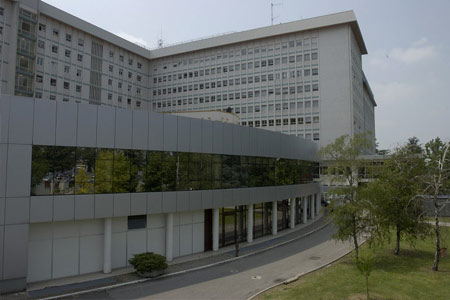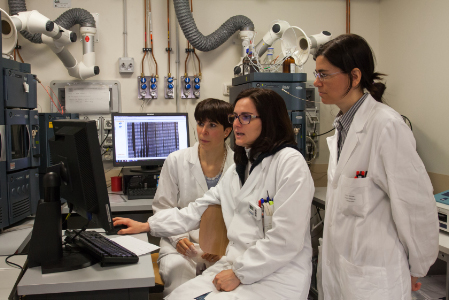Src family tyrosine kinases play an essential role in signal transduction by different
receptors. The evidence that c-Src acts as an oncogene implicated in regulation of cell
growth and invasive capacity has been recently strengthen by the findings that an integrine-Src oncogenic unit promotes tumor progression and the acquisition of a metastatic phenotype. Studies performed in the laboratories of the applicant and of the applicant’s collaborators have established that Src-family kinases (SFKs), play an essential role in integrin-dependent myelomonocytic cell activation, movement and recruitment into tissues. More recently, we found that in myeloid cells the tyrosine kinase c-Abl interacts with the two leukocyte-specific SFKs Fgr or Hck bound to beta1 or beta2 integrins and is activated in a SFK-dependent manner. c-Abl-selective inhibitors, similarly to SFK-selective inhibitors, markedly inhibit myeloid cell migration and polarization. The main goal of this research project is to dissect mechanisms by which Src-family kinases and c-Abl crosstalk within a signaling pathway triggered by integrins and chemoattractant receptors. This objective will include studies on myeloid leukocytes, Bcr-Abl+ hematopoietic cell lines, cells from chronic myeloid leukemia (CML) patients and tumor cell lines.







